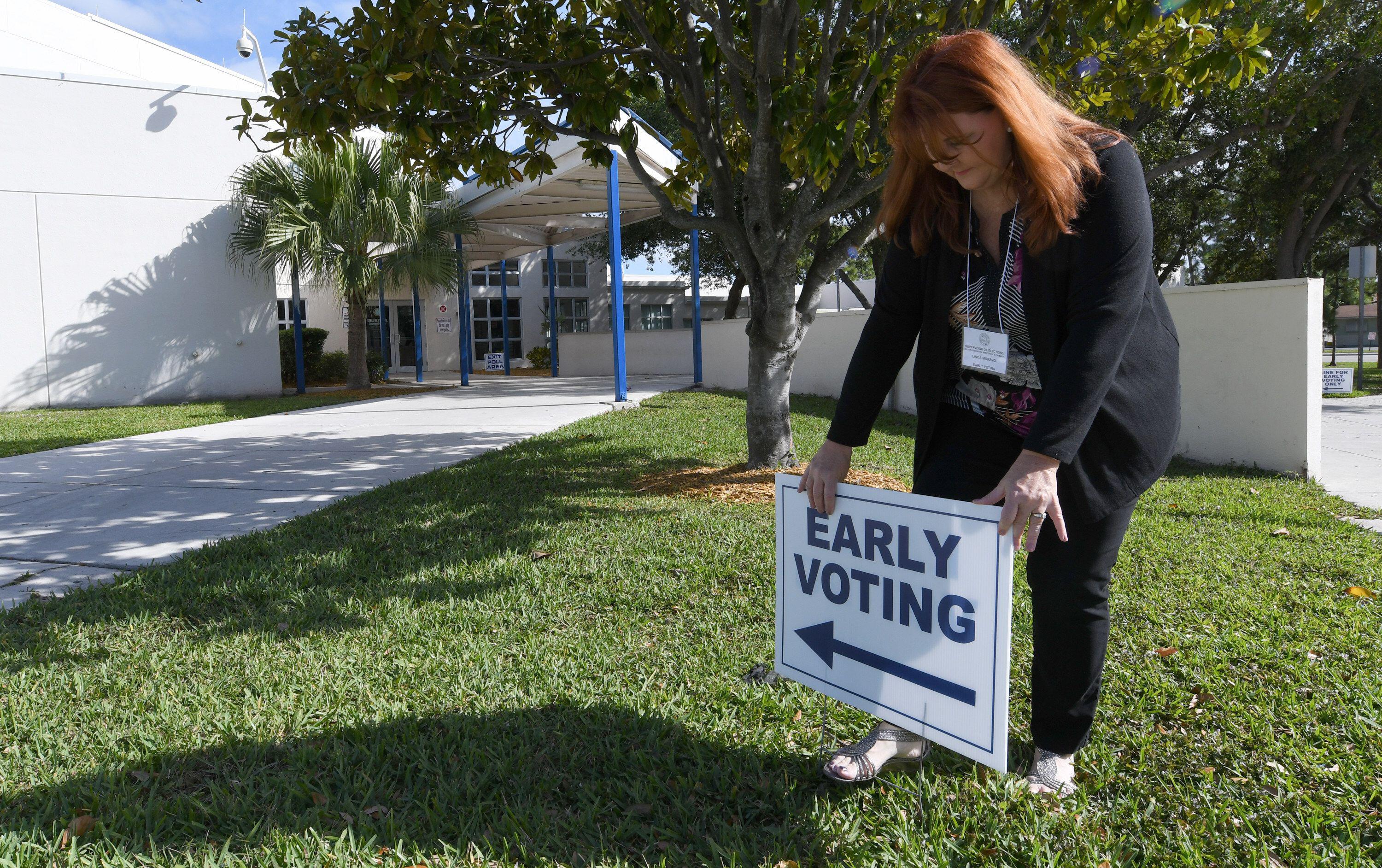
- Details
- By Native News Online Staff
TUCSON, Ariz. — In a victory for tribal voting rights, the Pascua Yaqui Tribe reached a settlement agreement with the Pima County Recorder’s Office that allows for an early voting poll on the Pascua Yaqui Reservation.
The settlement agreement in Pascua Yaqui Tribe v. Rodriguez was announced on Tuesday by the Pascua Yaqui Tribe, Campaign Legal Center (CLC), and Pima County Recorder’s Office.
Want more Native News? Get the free daily newsletter today.
The tribe filed the federal lawsuit in 2020 after repeated attempts to restore an early voting site on the reservation after it was abruptly relocated one month before the August 2018 primary election by former Pima County Recorder F. Ann Rodriguez. An early voting site had been located on the reservation from 2010 until 2018.
The relocation of the early voting site meant tribal reservation citizens had to travel eight miles away to cast ballots. According to tribal officials, transportation is problematic for many of its nearly 4,000 tribal citizens who live on the reservation.
The parties signed an agreement Friday that will establish an early voting site on the Pascua Yaqui reservation before the 2022 midterm elections for every statewide primary and general election. The agreement sets a deadline of February 2022 for the Tribe and Pima County Recorder to identify an acceptable early voting location. It also establishes that the County will fully staff a drop box location during the early voting period.
“The right to vote is the cornerstone of our democracy, and it is just as important in Arizona Indian Country and the Pascua Yaqui Reservation as it is in the rest of Pima County. We thank the Pima County Recorder for agreeing to settle this matter, with the aim to work cooperatively with the Tribe and ensure that Tribal members have an equal opportunity to vote,” Peter S. Yacupicio, chairman of the Pascua Yaqui Tribe, said.
Arizona has long history of voting discrimination against Native voters, according to voting rights advocates. The Arizona Constitution barred Native Americans from voting in state elections until 1948, and literacy tests and other barriers existed for decades afterwards.
Support our mission to create journalism that inspires, uplifts, and informs Native Americans.
In reaching the agreement, current Pima County Recorder Gabriella Cázares-Kelly has taken a drastic step to correct what she sees was a mistake by her predecessor.
“The closure of the Pascua Yaqui early voting site is a clear, modern-day example of how Native American voting rights continue to remain under threat,” Cázares-Kelly said. “It reminds us that we do not all start from the same starting line and some communities have to work harder to exercise our most basic and fundamental right. It is an honor to reinstate the early voting site to provide equitable access for the Tribal community. We look forward to many years of working with the Pascua Yaqui Tribe.”
The tribe is represented by CLC, Osborn Maledon, and the Indian Legal Clinic at Arizona State University.
Before filing suit, the Pascua Yaqui Tribe won support for an early voting site from the Mayor of Tucson, the Pima County Board of Supervisors, and the Arizona Secretary of State’s office, as well as voting rights advocates.
More Stories Like This
Native News Weekly (August 25, 2024): D.C. BriefsUS Presidents in Their Own Words Concerning American Indians
Navajo Man Faces Vehicular Homicide Charge After Child Killed at Navajo Nation Christmas Parade
Next on Native Bidaské: Lumbee Tribal Chairman John Lowery
Suspected Drunk Driver Crashes into Parade in Kayenta on Navajo Nation, Killing 1 & Injuring 3 Others
Help us defend tribal sovereignty.
At Native News Online, our mission is rooted in telling the stories that strengthen sovereignty and uplift Indigenous voices — not just at year’s end, but every single day.
Because of your generosity last year, we were able to keep our reporters on the ground in tribal communities, at national gatherings and in the halls of Congress — covering the issues that matter most to Indian Country: sovereignty, culture, education, health and economic opportunity.
That support sustained us through a tough year in 2025. Now, as we look to the year ahead, we need your help right now to ensure warrior journalism remains strong — reporting that defends tribal sovereignty, amplifies Native truth, and holds power accountable.
 The stakes couldn't be higher. Your support keeps Native voices heard, Native stories told and Native sovereignty defended.
The stakes couldn't be higher. Your support keeps Native voices heard, Native stories told and Native sovereignty defended.
Stand with Warrior Journalism today.
Levi Rickert (Potawatomi), Editor & Publisher

